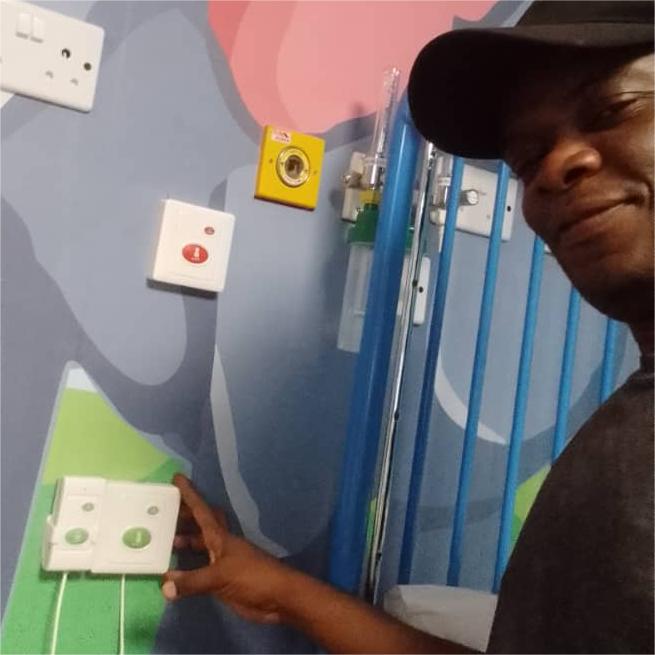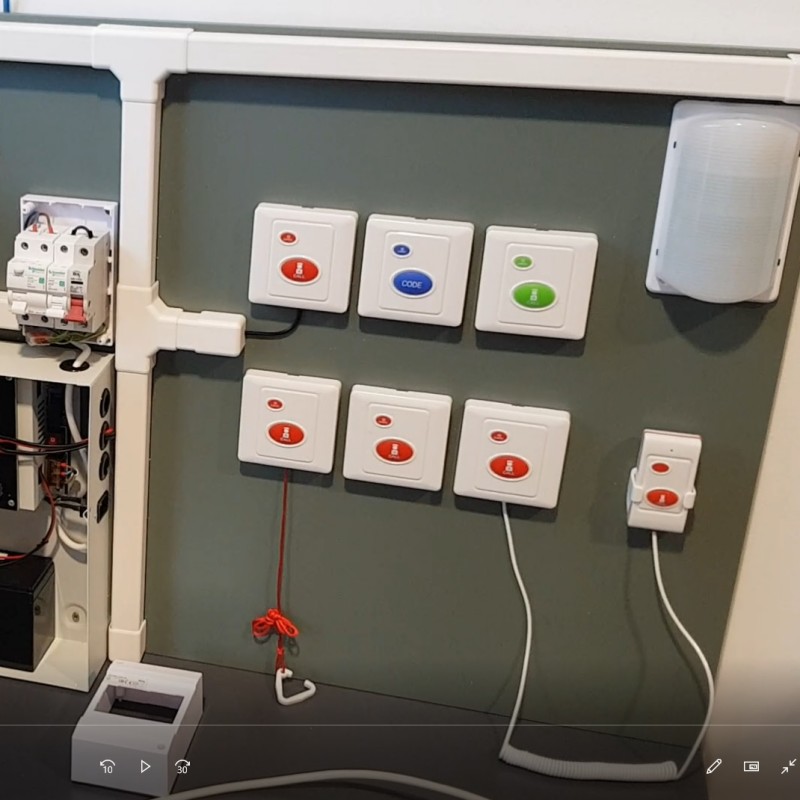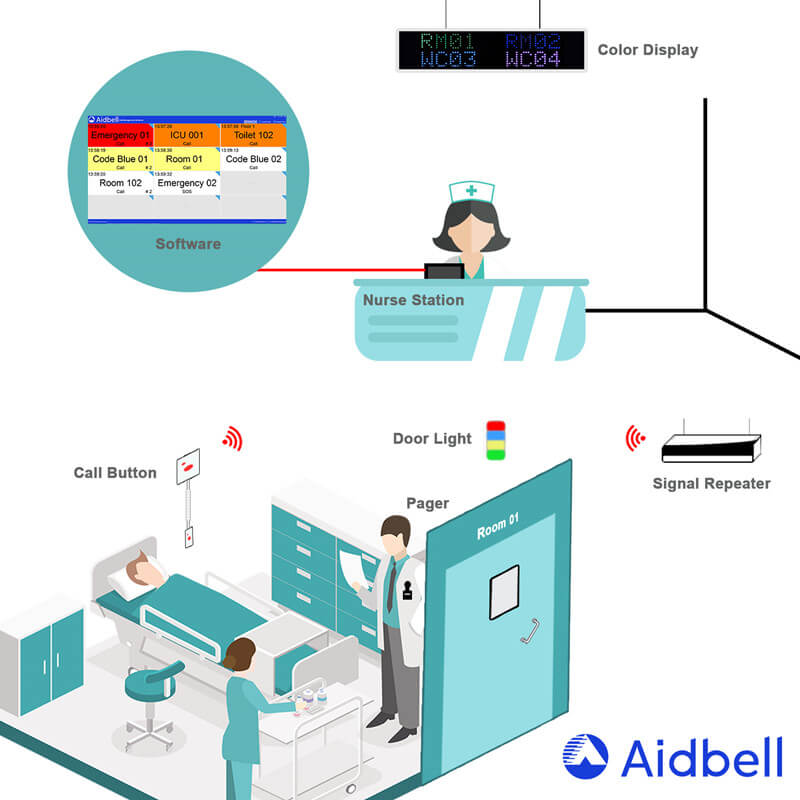What Are The Benefits of Hospital Pager Systems?
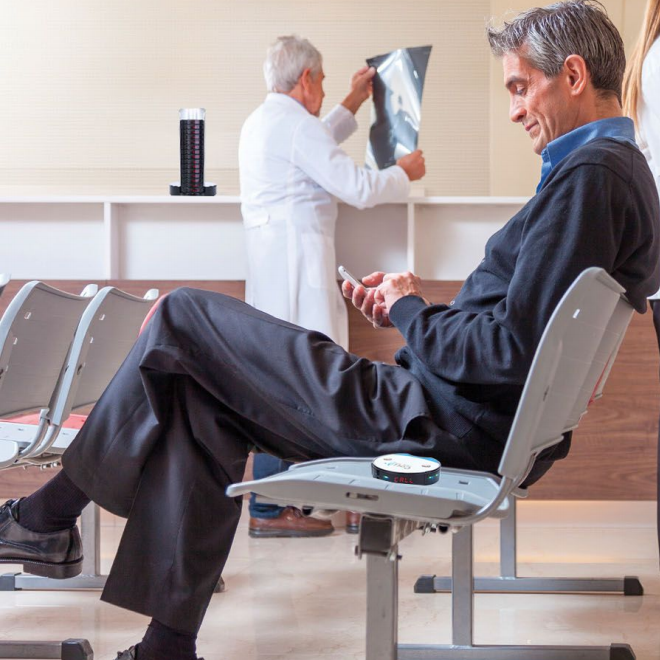
Why do hospitals still need to use nurse pagers when smartphones can offer the same communication capabilities and sometimes better? The debate for and against wireless paging systems continues to rage with some terming pagers as an extinct technology that should be done away with in favor of smartphones.
However, while paging systems have been in use for more than 50 years in hospitals, they are still as relevant today in transmitting critical information and penetrating areas where cellular networks cannot reach. Some of the major benefits of hospital pager systems include:
1. Improved Hospital Waiting room Experiences
Hospital pagers are not used for communications between staffs; they are evolving to become a critical part of patient care, partly thanks to the COVID-19 pandemic. Hospitals are adopting guest paging systems to help them balance the fight against the virus with service delivery and patient care.
Hospital waiting rooms get crowded, unsanitary, intrusive, and noisy. But with hospital pager systems, hospitals can streamline their waiting room experiences by taking advantage of the benefits offered by Aidbell.
Some of the ways hospital pager systems improve wait room experiences include:
- They reduce noise and protect the privacy of patients by eliminating the need for overhead or out-loud calling of patients
- They reduce crowding in the waiting room as a patient can walk around the hospital with their pager and receive a notification when it’s their turn to be served. Reduced crowding also means that unsanitary conditions likely to happen in waiting rooms are also reduced.
- Patients can have a more relaxed waiting experience by walking around hospital grounds
- Pagers allow for discrete communications and directions to patients
- Aidbell pagers can notify patients when they are getting too far from the facility
Hospitals that implement pagers in their waiting rooms have less stressed staff and patients and offer richer waiting room experiences than those that do not.
2. Reliable Communication
Pagers have remained a reliable communication tool in hospitals for more than 50 years. While they have evolved to accommodate new technology, functionalities, and encryption, pagers still offer reliable communication between staff and patients within a hospital.
They rely on radio frequencies to receive and transmit messages, making them a great choice for hospitals, which are known to have many dead zones for cellphones. They are also ideal for remote areas with low penetration of cellular networks. Radiofrequency transmission is important in emergencies and disasters, which cause outages in cellular networks, making mobile phones virtually useless during such occurrences.
Their use of radiofrequency transmission means they do not interfere with medical devices within your facility.
Pagers can send and receive messages during emergencies or disasters, over longer distances, and to a group of people simultaneously. Simulcast technology found in pagers makes them significantly more reliable than cellular networks in sending multiple messages from one site to other pagers in the network.
Encrypted pagers offer reliability in that hospitals can transmit highly sensitive information without the risk of leaks and HIPAA non-compliance.
Pagers have a long battery life, meaning that they can be charged once every two days. Such reliability is critical, especially in emergencies or long shifts when the user might not have time to charge their pager everyday.
3. Ease of Use
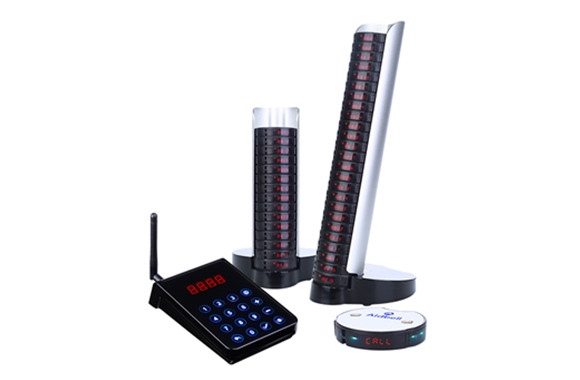
Hospital Paging Systems require little to no training making them ideal communication solutions in hospitals. It would be costly and time-consuming for hospitals to train their staff on how to use pagers every time a new user comes in.
However, pagers are easy to use, making them applicable for a wider user-base as well. Hospitals and nursing homes cater to people with different abilities, which could affect their use of communication devices such as smartphones.
Hospital pager systems are built with hospitals in mind; therefore, simplicity is integrated into their design. The steps to viewing a page are less compared to the steps a person should take before reading a message on a cellphone.
The simplicity in their use is essential for healthcare workers who often have to deal with patients and make quick decisions.
4. Keep Social Distance
Healthcare workers are at the frontline of fighting the coronavirus pandemic, and must therefore have the means to protect themselves and their patients while offering quality healthcare services to their patients.
But the virus has created an extra burden upon hospitals forcing them to find creative ways to manage patients observe social distancing and still offer patient-care.
Hospital paging systems have played a critical role in helping hospitals maintain social distance by allowing patients to wait at different areas in the hospital instead of congesting into the waiting room area.
Using a hospital paging system with a protective shield to prevent the spread of bacteria and viruses is also critical in preventing the spread of different illnesses.
When a patient comes into the hospital, they are given a pager. They can sit in their cars or on outdoor benches and chairs waiting for their turn to be served. This means that a hospital can still accommodate the pre-COVID patient volume, but with a reduced risk of spreading the infection to other patients or health workers.
5. Improved Response Rates
Wireless queueing system is a supplement to Wireless paging system, which provides faster responses to patients as they remain informed as they wait in line for their service.
Your patients can sit anywhere and monitor the queue progress on LED displays connected to the queueing systems.
In addition, nurses only need to press the patient’s queue number to inform them that it’s their turn to be served.
Final Word
While pagers have been around longer than cellphones, and some consider them outdated technology, they still offer major benefits to hospitals. From their reliability in communication to their ease of use by both patients and staff, pagers are devices that will stick around longer in hospitals.
Manufacturers of hospital pager systems are improving the technology in pagers to allow for two way communication, HIPAA compliance, and better security. With such improvements, these systems become more efficient at streamlining communications in a hospital.

